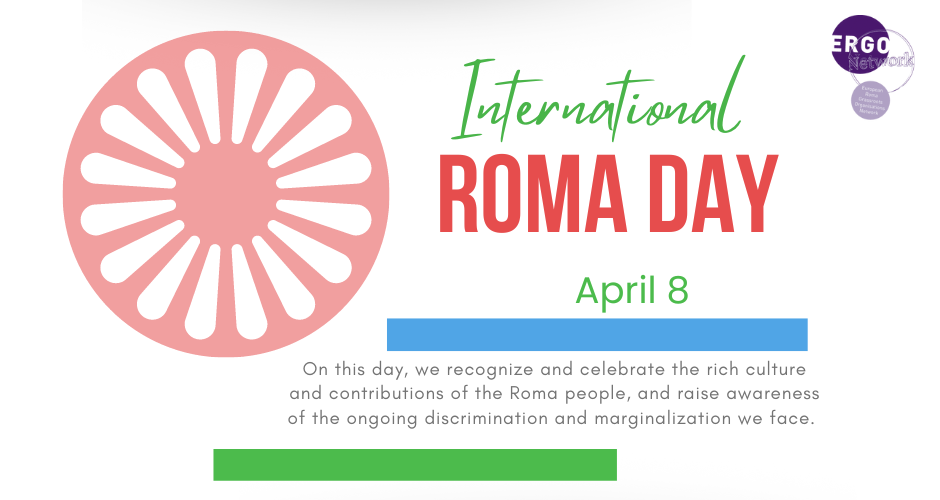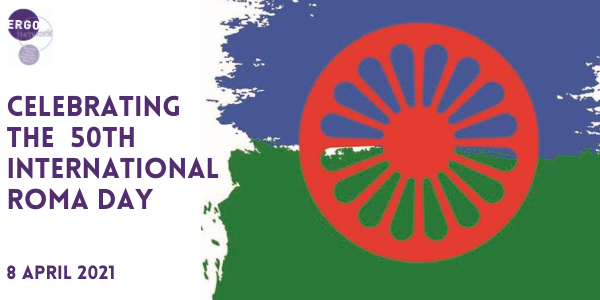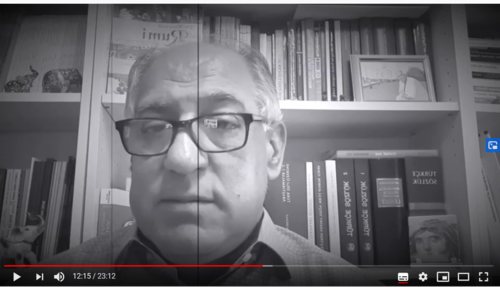The Future of Roma in Europe: Combating Antigypsyism in the Face of Rising Far-Right Trends and European Elections
International Roma Day 2024 marks not only a celebration of Roma culture and heritage—as it will often be seen and carried out by national governments and international institutions—but, most importantly, a critical moment to reflect on the ongoing challenges Roma, Sinti, and Travellers across Europe face.
This year, the International Day marks the launch of the Romani Week 2024, a yearly event coordinated in Brussels by the ERGO Network for civil society organisations, European institutions, and other international and intergovernmental organisations. It aims to raise awareness of the situation of Roma, Sinti, and Travellers in Europe. All relevant stakeholders, including Roma representatives and European youth, attend the event. This time, it coincides with a pivotal moment in European politics — the upcoming European elections. The voices and rights of marginalised communities, including Roma, are at stake amidst the rise of far-right movements and the looming shadow of antigypsyism.
The director of ERGO Network Gabriela Hrabanova commented that in recent years, Europe has witnessed a surge in anti-racism movements spurred by initiatives like Black Lives Matter:
“However, paradoxically, this surge has been accompanied by the ominous rise of far-right ideologies and xenophobic sentiments across the continent. These trends manifest not only in street-level bigotry but also in the corridors of power, with far-right political groups gaining ground and threatening to reshape the European political landscape.”
At the heart of these challenges lies the pervasive issue of antigypsyism — an entrenched form of racism and discrimination specifically targeting Roma. Despite efforts at the European level to address this systemic injustice, progress remains obstructed by the lack of political will and fragmented policies across member states. National Roma Strategic Frameworks often falter in implementation, leaving Roma communities vulnerable to social exclusion and marginalisation.
Against this backdrop, Romani Week 2024 emerges as a dialogue, advocacy, and action platform. Its objectives are clear: to foster discussions on political, economic, and human rights changes in Europe and ensure that Roma, Sinti, and Travellers are not sidelined in these conversations. By amplifying our voices and experiences, Romani Week aims to compel policymakers to prioritise the equality, inclusion, and participation of Roma communities across all spheres of society.
Key topics on the agenda include the alarming threats posed by antigypsyism and structural discrimination, the imperative of promoting Roma participation in decision-making processes, and the urgent need to monitor and implement National Roma Strategic Frameworks effectively. Moreover, Romani Week will advocate for truth and reconciliation processes to confront historical injustices and pave the way for a more equitable future.
Today on International Roma Day – a day when our voices are heard probably a little louder than usual – let us reaffirm our commitment to combatting antigypsyism and advancing the rights of Roma, Sinti, and Travellers. Let us harness the power of collective action to challenge bigotry, dismantle systemic barriers, and build a Europe where every individual, regardless of ethnicity or background, can thrive and flourish. In the upcoming European elections, let us vote with empathy, solidarity, and inclusivity, ensuring that the voices of Roma communities are counted in shaping the future of our continent.





